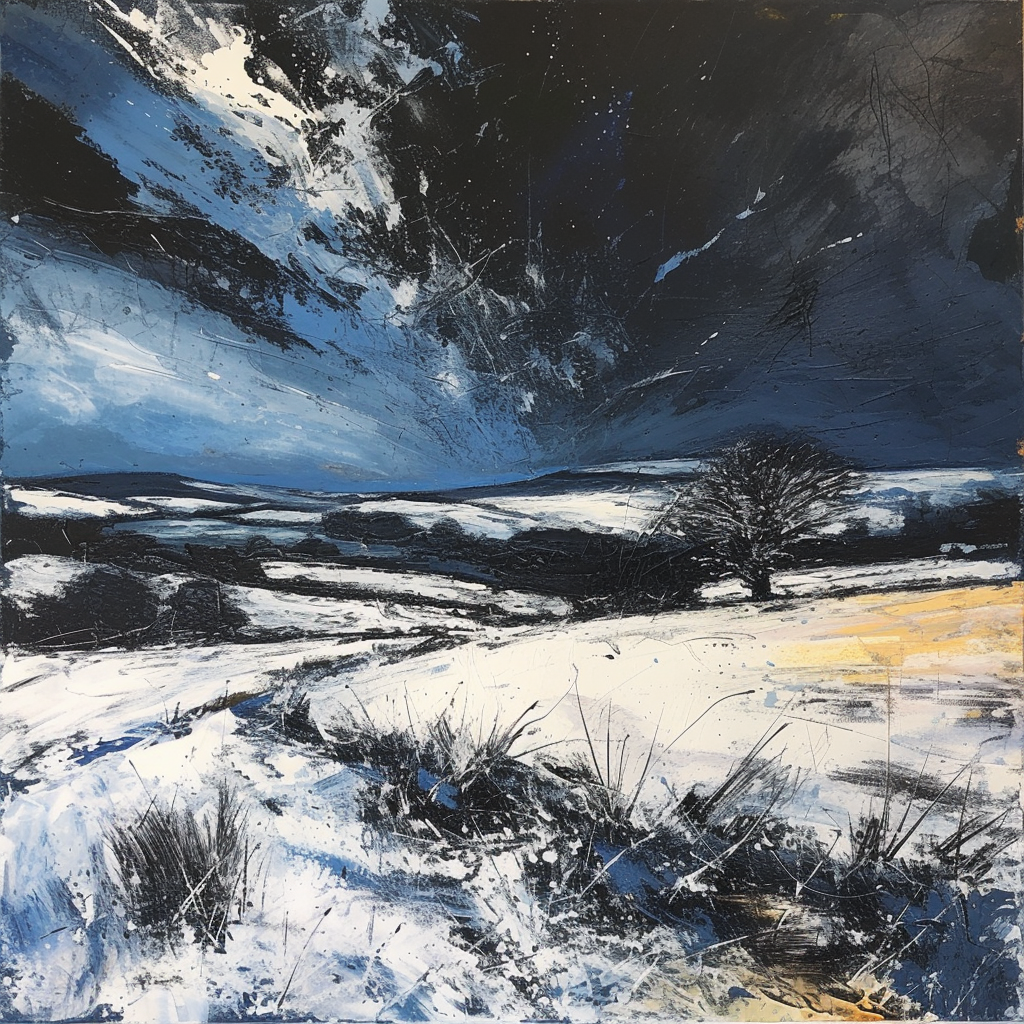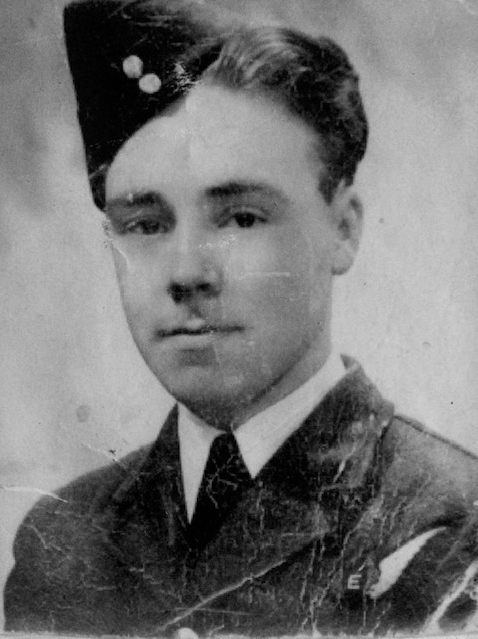WHAT is History?

HISTORY
WHAT is History?
Caution in History ~ Artwork by Nico Jacobs via Unsplash
WHAT IS HISTORY?
I
This reflects upon my conversation with a friend at 34 Birch Road, a holiday cottage on 11 November 2023 , Barnard Castle, Northumberland. His wife has just retired to bed. I asked about the Sir Ian Kershaw Paper he had sent me in October.
A brilliant conversation followed which I can best liken to the thrill we experience when we watch a fast-forwarding film of a seed becoming a bud and then burgeoning forth as a beautiful fully grown flower.
What I call the from nothing to magnificence experience. And with this, a whole new perspective; or a perspective that is greatly enhanced.
II
It is a dry, chill, grey, biting day
yet exhilarating and invigorating here,
high upon the Cotswolds.
Over the last 4–6 weeks, there has, therefore, been a sea change in my enjoyment of history. I no longer seem to be peering from my own vantage point at peoples, ancient, long dead, of no meaning today, cardboard figures or cut-outs, lifeless and without "our" sophistication. No. It happens every time.
Whatever the subject, whoever the person or people, I find myself for the first time standing alongside, in amongst them, fully aware that they are as alive in their period on life's timeline as I am now - where I stand, on the very same timeline. The result? A need to re-evaluate everything.
To see every point of view.
To observe every perspective.
To come to terms that I am surrounded by millions of dimensions, present and past, dimensions that, collectively, run into billions, trillions even.
This I could not have grasped
in the 1970s, 1980s, 1990s
or even the first fifteen years of this century.
III
A decade ago, within the freedom and security of Liverpool, I began to think in terms of a thousand dimensions, but that, compared to now, was merely my first tentative step on the sea's outer edge, eventually up to my ankle.
I do not see the world or the universe in the way that religious convention prefers.
That notion is like unwanted cargo that I've let slip, and watch go over the side with no desire of retrieval. What I now have makes up a hundred-fold for that loss.
Is this the definition of delusion? Probably not.
IV
What is the Root of the Tree of History?
Beware the desire to only live the moment and to regard the past as irrelevant.
Reading John Curry's autobiography, there is an alarming amber warning. For people like me, it is not amber, it is red.
It relates to his mother’s outlook on life.
“And while Joseph’s experiences ultimately slated him towards alcohol, his future wife always wrapped her own inside, a toughly, unsentimental pragmatism that required the past to be kept firmly in its place. ‘I don’t believe in keeping the past. Not any of it, she says. It was a credo well evidenced by her son’s cardboard boxes.
It was no accident, in later, years, that Rita retained just a single picture of John’s father. She would keep none of John’s letters, school reports, or early photographs, either. Nor those of her other two sons. Even if John had wanted them, Rita had already thrown them all away. ‘She makes no sentimental investment in items,’ says John’s brother, Andrew. ‘She lives in the now.’ There are worse ways of compensating for dislocation and abandonment.
Rita had been born in Worcester shortly after Christmas 1913. Ten days later, her mother was dead. Shortly after that, her father decided that he was unsuited to child-rearing, and passed the infant Rita onto the family of his wife’s brother. She would have no further contact with her father.
Having been born Richards, she now - informally - took the name Pritchard. She also turned her back on the family she had, once, albeit briefly, been part of.
’I had several sisters, I think, who I didn’t know,’ she says. ‘I don’t know why. Not interested really.’
Living in the present made the task of interring the past that much easier. ‘I don’t talk about it. It was my fault. I made a mistake and thought it better to finish.’
Only those who needed to know would be let in on her ‘mistake’, and in any event, Rita would not be alone for long. ”
This is an understandable reaction to the upheaval and rejection. This is very different to the current trend to reject all things to do with our past as irrelevant.
If I adopt that approach, then I have no root upon which to see my own life nourished and thereby encouraged to full growth. If I do not take note of the past, then all the mistakes of the past, will simply find very fruitful ground upon which to root themselves and revisit with vengeance.
I often meet cardboard cut-out people. Live the moment, they fail to perceive that to be one dimension in thought, word and deed is not a commendation.
Take this other quote from Curry.
To be gay in 1950s, and early 1960s Britain was a terrifying, and lonely, thing. Homosexual acts, even in private, were a criminal offence. Queer-bashing - especially in London - had almost attained the status of a routine weekend sport. In public life, a furious witch-hunt seemed hell-bent on ruining homosexual men holding a high public office. And, in public toilets, policemen, skulked in cubicles, hoping to add to the hundreds of men locked behind bars every year, mainly for acquiescing to their apparently, incomprehensible desires.
The British post-war mood of revulsion.
In 1947, Brigadier Harry Butler Hitchins have been appointed headmaster; a 6’6” tower of military bristle, his references for the job included Field Marshal Montgomery and Dwight D. Eisenhower. In 1963, just four weeks before John [Curry] started at Solihull, Hitchens had killed himself as black rumours closed in around his good name. There was talk of a sordid moment in a rugby toilet. Stories of jilted, schoolboy lovers – and blackmail threats – were muttered, and then silenced as the school moved swiftly to bury speculation. In its official history, today, it speaks only of the Brigadier’s ‘sad death’. These will be the whispered shadows of John’s adolescence.
“To be gay in 1950s, and early 1960s Britain was a terrifying, and lonely, thing. Homosexual acts, even in private, were a criminal offence. Queer-bashing - especially in London - had almost attained the status of a routine weekend sport. In public life, a furious witch-hunt seemed hell-bent on ruining homosexual men holding a high public office. And, in public toilets, policemen, skulked in cubicles, hoping to add to the hundreds of men locked behind bars every year, mainly for acquiescing to their apparently, incomprehensible desires.
The British post-war mood of revulsion.
In 1947, Brigadier Harry Butler Hitchins have been appointed headmaster; a 6’6” tower of military bristle, his references for the job included Field Marshal Montgomery and Dwight D. Eisenhower. In 1963, just four weeks before John [Curry] started at Solihull, Hitchens had killed himself as black rumours closed in around his good name. There was talk of a sordid moment in a rugby toilet. Stories of jilted, schoolboy lovers – and blackmail threats – were muttered, and then silenced as the school moved swiftly to bury speculation. In its official history, today, it speaks only of the Brigadier’s ‘sad death’. These will be the whispered shadows of John’s adolescence.”
To be gay in 1950s, and early 1960s Britain was a terrifying, and lonely, thing.
Why do I write this? Simply this. Because for many, in many countries, those terrifying days are returning.
V
Never lose sight of the past. Never regard the past as irrelevant. To use the modern vernacular so beloved of Generation Z:
History, ignored, has a tendency to bite you on your fucking arse.
9 February 2024
All Rights Reserved
LIVERPOOL
© 2024 Kenneth Thomas Webb
Digital Artwork by KTW unless otherwise credited
Ken Webb is a writer and proofreader. His website, kennwebb.com, showcases his work as a writer, blogger and podcaster, resting on his successive careers as a police officer, progressing to a junior lawyer in succession and trusts as a Fellow of the Institute of Legal Executives, a retired officer with the Royal Air Force Volunteer Reserve, and latterly, for three years, the owner and editor of two lifestyle magazines in Liverpool.
He also just handed over a successful two year chairmanship in Gloucestershire with Cheltenham Regency Probus.
Pandemic aside, he spends his time equally between his city, Liverpool, and the county of his birth, Gloucestershire.
In this fast-paced present age, proof-reading is essential. And this skill also occasionally leads to copy-editing writers’ manuscripts for submission to publishers and also student and post graduate dissertations.










